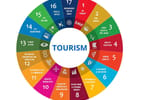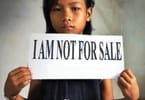Thousands of Kiwis in Thailand are being urged to leave after the Government increased its advice on the Thai capital to “extreme” risk.
Protests in Bangkok turned violent last week and 36 people have died in the fighting since Thursday, according to official medical sources.
At least 65 people have been killed and more than 1600 wounded since the red shirts began their protest in mid-March.
The mostly rural and urban poor protesters, supporters of ousted premier Thaksin Shinawatra, accuse the government of colluding with the royalist elite and meddling with the judiciary to bring down two Thaksin-allied governments.
The NZ Government’s warning comes after a Kiwi was injured in the protests.
The Ministry of Foreign Affairs and Trade (MFAT) this afternoon upgraded its travel advisory to “extreme” due to the political and civil unrest and threat of terrorism.
MFAT is now advising Kiwis not to travel to Bangkok, while those already there are encouraged to leave.
An MFAT spokesman said the Kiwi had been treated in hospital on Saturday for minor injuries and allowed to leave. TVNZ reported that the injured man’s name was John Bailey.
There were 380 New Zealanders registered in Bangkok and 918 in Thailand in total. But officials believe there could be up to 650 in Bangkok and as many as 2000 elsewhere in Thailand.
“Given the unpredictability of the situation and the gradual ramping up and spread of violence in recent days, this afternoon, MFAT increased the level of its travel advisory for Thailand,” Mr Key said.
“The Government has upgraded the risk level for Bangkok to the extreme risk. We advise against travel to Bangkok and New Zealanders currently in Bangkok should consider departing.”
The Government had authorised the voluntary departure of the families of embassy staff from Bangkok.
The Bangkok Airport was still open and access to it remained clear so people there should get out now, Mr Key said.
“Commercial flights are operating so there are options for New Zealanders to leave that may not be available later on.”
Mr Key said he was confident the Government could rely on commercial flights to transport people out of Thailand but would “look to act” if the situation changed.
Those in other parts of Thailand also faced a high risk to their security, MFAT said.
French news agency AFP said the Kiwi was among six foreigners injured – the others were from Canada, Italy, Liberia, Burma and Poland.
The injured Kiwi had not yet contacted the Embassy for consular assistance, the spokesman said.
Outside of Bangkok, the risk assessment for the rest of Thailand was still high, meaning all tourist and non-essential travel should be avoided.
The New Zealand embassy remained closed until further notice so consular assistance was still restricted.
VIOLENCE OVERNIGHT
A Reuters photographer reported heavy fighting during the night at the luxury Dusit Thani Hotel in the Silom area, right opposite one of the barricades set up by the “red shirt” protesters around their 3 square-kilometre encampment.
“Everybody was evacuated from their room and spent the night in the basement,” said the photographer. “There was a lot of shooting,” he said, adding that fire had damaged the lobby.
The fighting has now killed 35 people since Thursday, Erawan Medical Centre said, while Thai TNN TV said the first soldier to die in the latest bout of violence was killed in clashes in the Silom Road business area.
Thai TV reported that one person was killed when grenades were fired at the Dusit Thani Hotel, but that could not immediately be confirmed.
“We cannot retreat now,” Prime Minister Abhisit Vejjajiva said in a televised statement late on Sunday, encapsulating the government’s all-or-nothing campaign to end protests seeking to topple his fragile, six-party coalition.
Monday and Tuesday were declared public holidays, but banks and financial markets will open.
The mostly rural and urban poor protesters, supporters of ousted premier Thaksin Shinawatra, accuse the government of colluding with the royalist elite and meddling with the judiciary to bring down two Thaksin-allied governments.
Analysts and diplomats said the military had underestimated the resolve of thousands of red shirt protesters who had taken over a district of luxury hotels and shopping malls from April 3.
“Unless the government cracks down and does so decisively – and that’s a big if – we are going to be seeing rioting and guerrilla warfare, possibly spreading out to other areas,” said an Asian diplomat who declined to be identified.
That has already started to happen.
A state of emergency has spread to more than a quarter of the country after emergency decrees were declared in five more provinces on Sunday, bringing the total to 22, as violence erupted in the north and northeast, a Thaksin stronghold home to just over half of Thailand’s 67 million people.
In Ubon Ratchathani province, protesters burned tyres on several roads. One group tried to break into a military compound but were forced back by soldiers firing guns in the air.
At least 64 people have died and more than 1600 have been wounded since the red shirts began their protest in mid-March.
A red shirt leader, Nattawut Saikua, called for a ceasefire and UN-moderated talks to end the violence that began on Thursday evening with an attempted assassination of a renegade general advising the red shirts, who was shot in the head.
The government dismissed the offer. “If they really want to talk, they should not set conditions like asking us to withdraw troops,” said Korbsak Sabhavasu, the prime minister’s secretary-general.
QUE RETENIR DE CET ARTICLE :
- The fighting has now killed 35 people since Thursday, Erawan Medical Centre said, while Thai TNN TV said the first soldier to die in the latest bout of violence was killed in clashes in the Silom Road business area.
- A Reuters photographer reported heavy fighting during the night at the luxury Dusit Thani Hotel in the Silom area, right opposite one of the barricades set up by the “red shirt”.
- “Given the unpredictability of the situation and the gradual ramping up and spread of violence in recent days, this afternoon, MFAT increased the level of its travel advisory for Thailand,”.






















